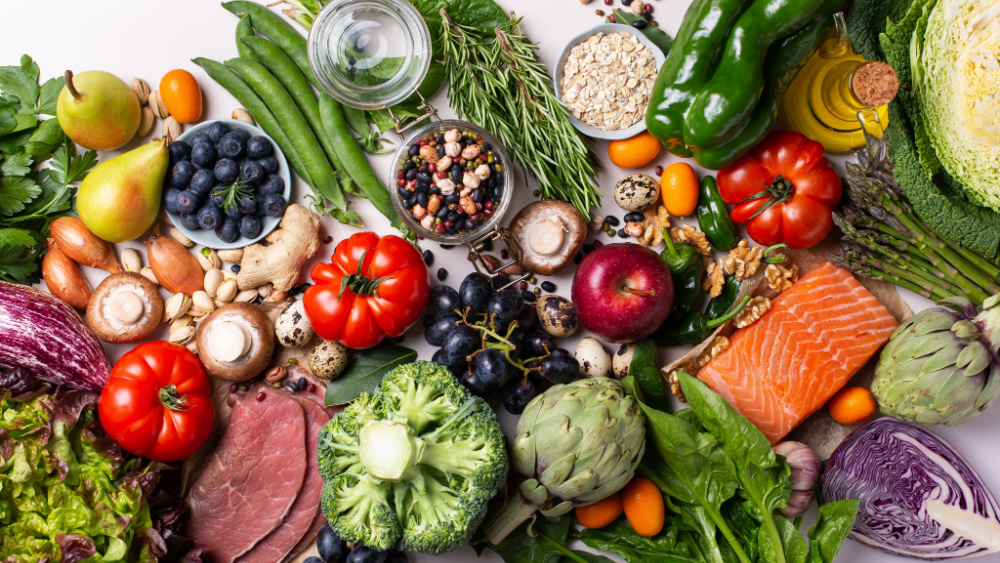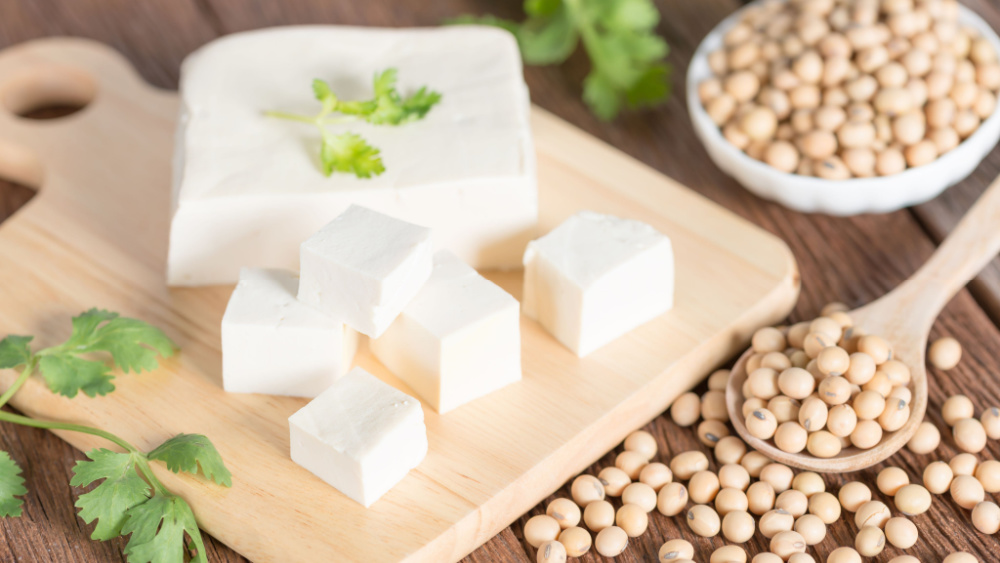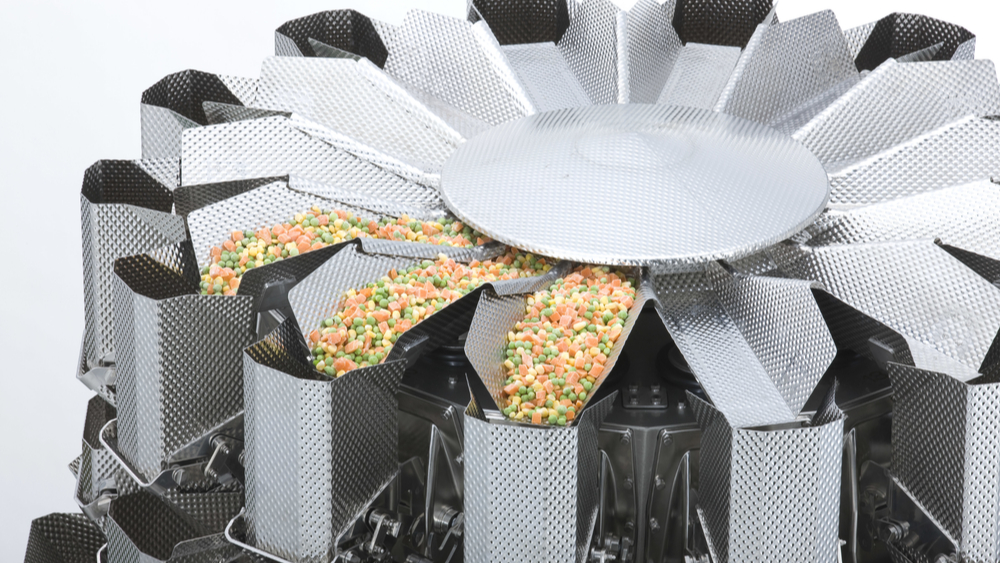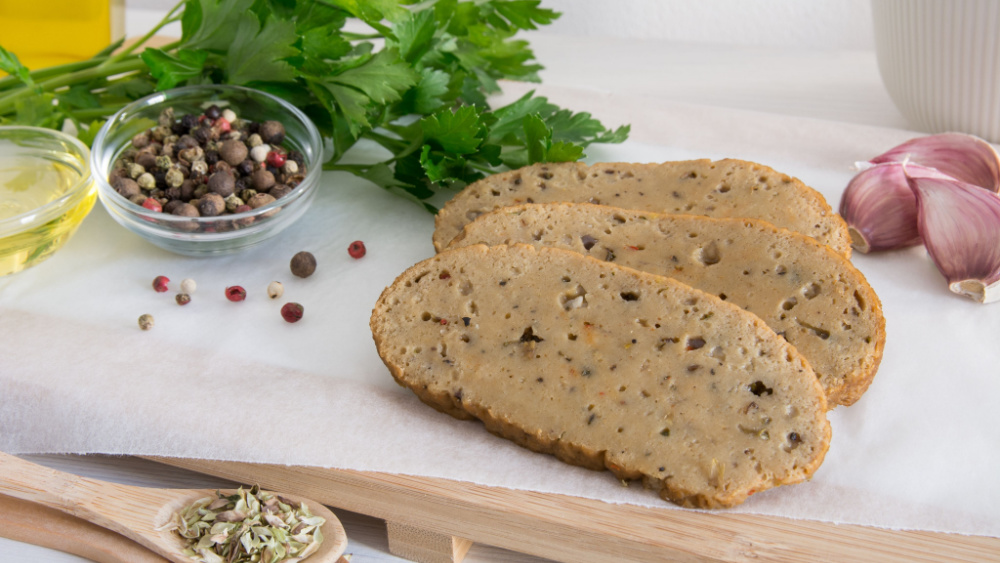Manufacturing for a flexitarian diet
The term ‘flexitarian’ is relatively new, reflecting the growing trend of people incorporating less meat into their diet – often through having one meat-free day a week or buying more plant-based goods.
Data collected in 2020 showed that over 42% of consumers now categorise themselves as flexitarians. Add in the rise of vegetarianism and veganism in the UK, and it’s apparent demand is rising for non-meat products.

In 2019, the UK meat alternative market was valued at $489.2 million and is expected to reach $726.8 million by 2025. With such growth predicted for the sector, YouGov has encouraged manufacturers to seize opportunities that arise under the trend to improve their sales and revenue.
If you want to reap the rewards of the flexitarianism trend, you need to ensure your plant is prepared for meat-alternative projects. Our step-by-step guide explores what you need to consider for maximum results.
Analyse customer data
The first step to any new project in your plant is to know the expectations you need to meet. Spend time learning what your customers want from meat-alternative products, so you define the specific criteria you need to incorporate into your processes.
In this scenario, ‘customer’ might apply to brands or retailers ordering the products or the consumers buying them at the end of the chain. Open discussions and gathering data (including surveys, focus groups and competitor research) will give you more insight into their expectations and preferences.
Once you know what customers require, you may create a checklist of specifications you need to address, making it easier to build a capable production line.
Be adaptable and open
When attempting to win over plant-based projects, you must show clients that you can handle their requirements. This is especially crucial if you usually work with meat products and are looking to enter a new market.
Be flexible and resilient while highlighting that you are equipped for meat alternatives. You will need to prepare pitches to secure contracts, so ensure these make it clear what you will do to adapt your plant for the project with an effective plan.
Understand the materials you process
If you are working with meat alternatives for the first time, the chances are you will need to process materials you aren’t used to. Alongside fruit and vegetables, typical options for meat include tofu, seitan, tempeh, mycoprotein or soya and vegetable proteins.
These materials will have different characteristics than meat, including changes in consistency, fragility, etc. You need to understand these traits to create processes that overcome challenges and meet quality standards.

Spend time learning about the materials you will use to uncover their requirements – it might even be worth conducting test runs to check that your equipment is compatible.
Separate lines
When working with vegetarian or vegan-friendly products, it is essential to prevent contamination with any ingredients that may cause them to become unsuitable for their intended audience.
If you also process meat or dairy products in your plant, you must create separate lines that avoid cross-contamination with your plant-based materials. A failure to do so could quickly lead to scandal if it is found that your products aren’t labelled accurately and aren’t suitable for vegans/vegetarians.
If you can’t have separate lines, any shared equipment or machinery used on non-vegan or vegetarian projects must be thoroughly cleaned before moving to your meat-alternative products.
Similarly, staff working across lines should ensure they undertake suitable hygiene protocols when moving between lines to avoid cross-contamination. Product inspection, such as x-ray or manual processes, might help you to check for any accidental inclusions that make your products unsuitable (as well as allowing you to comply with safety standards).
Invest in robust machinery
Every product should be processed with robust machinery, and meat alternatives are no different. Once you have understood the materials you will work with, the next step is finding systems that are compatible, reliable and compliant with specifications.
Examples of machinery you will need include:
- Accurate weighers that enable portion control in keeping with your agreed parameters
- Conveyor systems that allow for good product flow
- Production inspection equipment that safeguards against contamination and addresses other product issues, e.g. packaging faults or poor presentation
Each machine you utilise needs to address the requirements of your materials, allowing you to maximise efficiency and prevent any problems that could delay production or compromise outcomes.

It should also be in conjunction with processes that comprise the various tasks needed to meet quality standards. Ensuring you have the right equipment and procedures will generate better output while consistently meeting customer expectations.
Manage costs
The costs associated with manufacturing alternative products may vary. While it is often assumed they will be cheaper than meat, this isn’t necessarily the case. Some materials may be more expensive, especially if they are harder to get hold of, and you may require more ingredients to create the final products.
As with any project, cost management is crucial to protect profitability. Using the right equipment and processes should support this, allowing you to improve productivity and reduce waste through production line issues.
It may also be worth considering automation if you find suitable solutions. Automated equipment often reduces labour requirements, improves accuracy and speeds up timeframes. All of these will improve costs in your plant while maintaining quality.
Utilise high-quality ingredients
Although the flexitarian trend is relatively new, the market is already becoming competitive as more brands cotton onto the opportunities available. You need to ensure you are offering premium quality to stand out.
Remember that customers will still expect the same great tastes from alternative products that they would from traditional products. You need to find ways to offer these experiences and meet demand.

Using high-quality ingredients will help, so aim to source them from suppliers while bearing cost management in mind. Combining excellent ingredients with robust processes will give a better chance of maximising quality and winning over sales.
Focus on hygiene
Although plant-based products carry less risk than meat (which can leave consumers subject to food poisoning if not processed, stored or cooked correctly), hygiene still needs to be prioritised.
Many vegetarian and vegan products will contain fresh ingredients that could cause illness if not handled correctly. Similarly, they will also be subject to various forms of contamination, which may cause harm to the public.
Ensure you have strong hygiene procedures in place. These include a regular factory cleaning schedule, handwashing and PPE among staff and product inspection processes to identify issues. If a hygiene issue does occur, dedicate time to finding and solving the cause.
Good hygiene factors will also minimise the risk of cross-contamination while protecting your customers.
Be innovative
The meat-alternative market is still growing, with new technologies and product lines emerging. As consumer behaviour continues to evolve, there are likely to be more opportunities for your plant to embrace.
You must adapt your production to retain a competitive edge and meet demand. Continue tracking customer insight, monitoring what other manufacturers are doing in the sector, and incorporating new processes into your plant where necessary. Doing so will enable you to take advantage of the trend and win more contracts.
Create your flexitarian-friendly production line
Flexitarianism shows no signs of declining as more people choose to introduce plant-based food into their everyday diets.
While there is still room for the meat and dairy sectors, manufacturers can take advantage of new opportunities and improve their sales potential by being receptive to alternative projects.
If you do wish to introduce vegan and vegetarian-friendly projects into your factory, you will need to ensure you have suitable production lines that address specific requirements and drive quality output.
Yamato offers a wide range of solutions compatible with plant-based products across several sectors. From accurate weighers to trusted product inspection systems, we work with you to build robust production lines that meet customer needs every time.
Get in touch today to find out how we can help.

